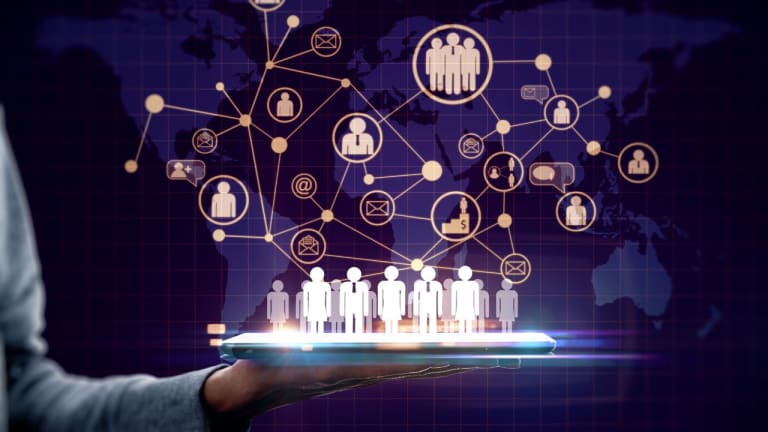
10 Things Where HR Should Not Use ChatGPT
LeadershipCultureHR Technology#HRCommunity#ArtificialIntelligence
Much has been said about the use of ChatGPT in Human Resource (HR) management. This Artificial Intelligence tool offers many advantages that can improve the efficiency and effectiveness of talent management processes.
In the recruitment process, ChatGPT can quickly review resumes and shortlist the most suitable candidates based on pre-defined criteria, thus speeding up the initial selection, as well as automating the scheduling of interviews, reducing the administrative burden. To enhance the employee experience, ChatGPT can provide round-the-clock assistance and offer instant guidance during the induction process of new employees. In terms of training and development, ChatGPT can provide personalized training recommendations based on each employee's individual needs and career goals, as well as facilitating interactive and engaging training sessions. In short, one could list many more tasks assisted or performed by ChatGPT, which many HR departments are already taking advantage of.
However, less has been said about the disadvantages or risks of the application of GPT Chat in talent management. There are tasks that, at least for the time being, can only be done (or at least closely monitored) by humans.
AI should augment, not replace, human judgment in HR processes. Critical decisions, especially those involving hiring, promotions, and terminations, should involve human oversight. AI can provide valuable insights and recommendations, but final decisions should be made by HR professionals who consider the broader context and nuances.
Respecting employee privacy is another key issue. AI systems must comply with data protection regulations, such as the GDPR. This includes obtaining informed consent for the use of data, anonymising personal data where possible, and implementing robust security measures to protect sensitive information from breaches or misuse.
AI is not a ship to sail alone, especially when it comes to human resource and talent management. Organizations must take responsibility for the outcomes of AI-driven HR processes. This includes establishing accountability mechanisms, such as clear policies on the use of AI, regular audits, and a process for addressing complaints or disputes arising from AI decisions.
Without exception, employees should be informed about how AI is used in HR processes and the implications for their work. Asking for their input and consent can help build trust and ensure that AI tools are used in a way that aligns with employee expectations and values.
It is also essential to cultivate an organizational culture that prioritizes the ethical use of AI. This includes training HR professionals and employees in AI ethics, establishing clear ethical guidelines for AI use, and fostering an environment in which ethical concerns can be raised.
Read also: Article: 10 things AI will never replace in the workplace (peoplemattersglobal.com)
These are ten areas of HR management that cannot be left "in the hands" of the ChatGPT, due to their sensitive or subjective nature. Let us mention some of them:
1. Bias and fairness: AI models such as ChatGPT can perpetuate biases present in historical HR data. If not properly trained and monitored, they may inadvertently discriminate against certain demographic groups in hiring, promotions, or other HR decisions.
2. Privacy concerns: AI systems process large amounts of personal data. Ensuring data privacy and compliance with data protection regulations (e.g. GDPR) is crucial. Mishandling sensitive employee information can lead to legal problems and reputational damage.
3. Lack of transparency: AI models, including ChatGPT, can be difficult to interpret. The 'black box' nature of these models makes it difficult to explain why a particular decision was made or recommendation was made, which can be problematic in HR decision-making.
4. Loss of the human touch: Over-reliance on AI in HR processes can lead to a lack of human connection and empathy. Some employees may prefer to interact with human HR professionals for sensitive issues.
5. Technical errors: AI systems can make mistakes, especially when encountering unexpected inputs or situations. Relying too much on AI without human oversight can lead to errors in HR processes.
6. Security vulnerabilities: Like any other technology, AI systems can be vulnerable to cyber-attacks or hacking attempts. Protecting AI systems and the sensitive data they handle is critical.
7. Quality of training data: The quality of data used to train AI models, including ChatGPT, is essential. Biased or incomplete data can lead to inaccurate and unfair results.
8. Employee resistance: Some employees may resist the idea of AI playing an important role in HR processes. They may have concerns about their job security, privacy or the fairness of AI-driven decisions.
9. Unintended consequences: The implementation of AI in HR may have unintended consequences. For example, if AI is used for employee performance appraisals, it may incentivise employees to game the system or focus on aspects that the AI values but are not in the best interest of the organization.
10. Cultural fit and company values: AI systems may not fully understand an organization's unique culture and values, which can be critical in HR processes such as hiring and employee development.
To mitigate these risks, organizations must implement AI into HR processes with careful planning and oversight. Regular audits, ongoing training, diversity in AI model development teams, and a commitment to fairness and transparency can help address many of these concerns. In addition, HR professionals should use AI as a tool to enhance their decision-making rather than completely replace their expertise and judgement.
Read also: Article: Will technology replace HR? (peoplemattersglobal.com)












